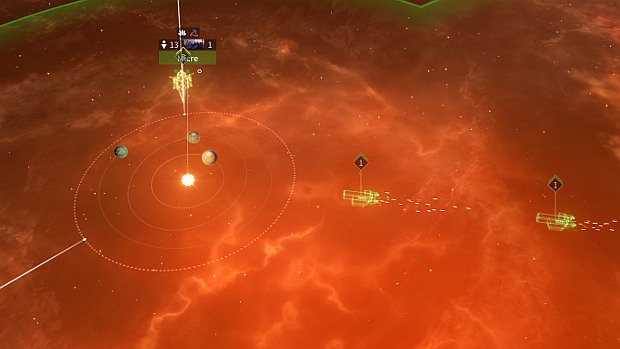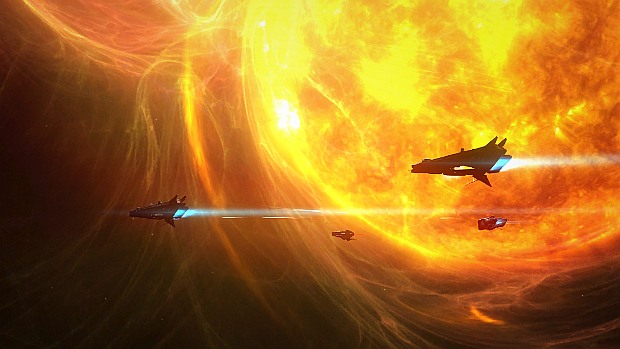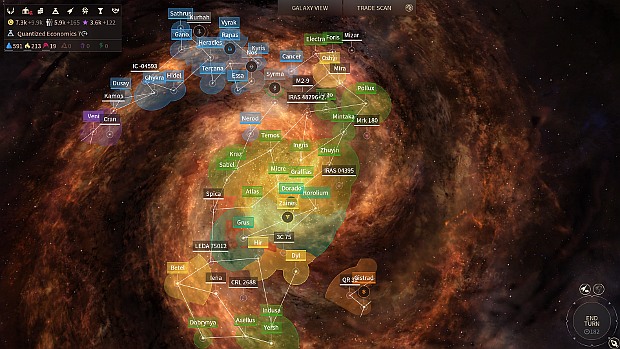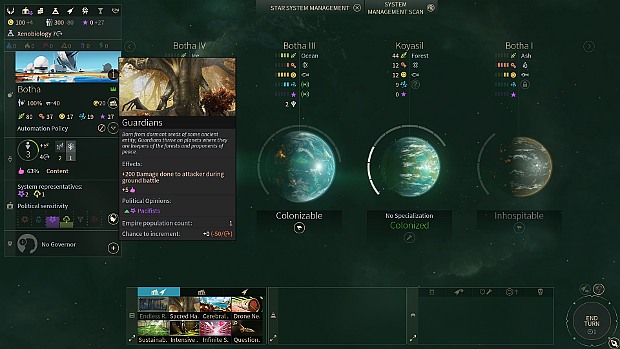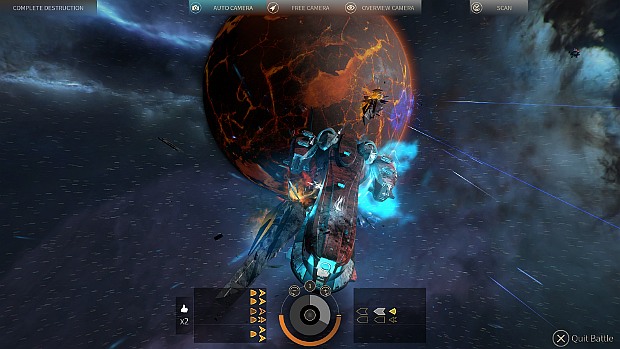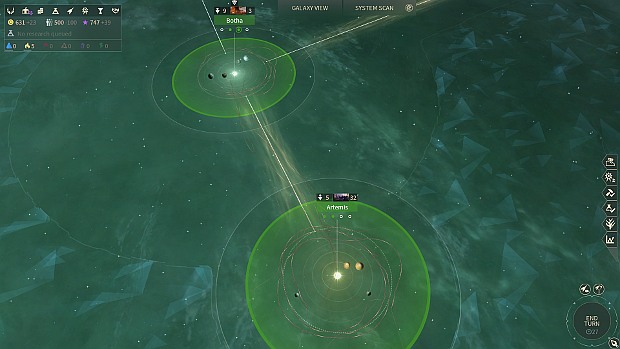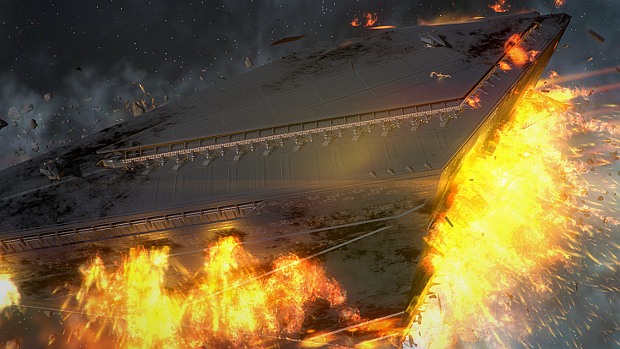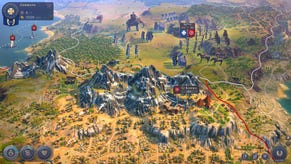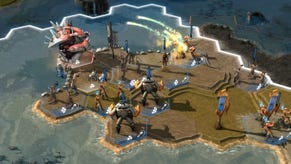Wot I Think: Endless Space 2
Close but no war
I can imagine the intervention now, family and friends sitting around me in a circle. “Fraser, we all care about you. You’re in a safe space. But you’ve got to stop falling in love with 4X games. It’s bad for your health.” I’d walk straight out of the room, of course. My new beau is Endless Space 2 [official site], and its got its hooks in me deep. Like its predecessor – definitely Endless Legend and not the first Endless Space – it’s a bold attack on the more staid elements of the 4X multiverse, full of character, weirdness and ambition.
Amplitude have crafted a game that oozes character and charm out of every pore. With its faction-specific soundtrack, lavish art and light RPG-like quests, it’s hard not to fall for it. Character doesn’t just mean flavour, either. Sure, Endless Space 2 is full of that, but what’s most compelling is the way in which it intersects with the mechanics, elevating them both.
Take the factions, for instance. The business-savvy Lumeris colonise worlds by paying private companies to do all the work. No colony ships needed. The arboreal Unfallen, on the other hand, link star systems together with cosmic tendrils, instantly colonising a world once the vines take root. Each of the Xs is informed by the history and abilities of the factions. Even on the same type of map, with the same opponents, playing as the the extradimensional Riftborn or the ravenous Cravers feels like a fundamentally different experience.
Factions aren’t just defined by their unique techs and fancy powers, however. They set the tone and inspire certain types of playstyles, but the politics system has just as big an impact. It’s perhaps the biggest hook that sets Endless Space 2 apart from Endless Legend, and its influence permeates throughout the entire game.
Each empire contains six potential political parties vying for power. How much control they have, and indeed if they they exist at all, is determined by the species living under your yoke. All of them have a political ideology they are most closely affiliated with, and over time they’ll help parties that espouse the ideals they dig. Political events, wars, building projects and other actions can also drum up more support for them.
And that’s why, playing as the largely pacifist Lumeris, I found myself dealing with a government run by the militarists. Through migration and swallowing up minor civilisations, I had a fair number of aliens who were a wee bit militant living in my empire, and I’d gotten myself into a nasty war, forcing me to construct lots of ships and military buildings, which in turn bolstered the party. Come the election, they dominated and the laws changed. Now I could declare war without any cost, get more manpower and buy cheaper ships. My people loved it. Who doesn’t love a warmonger?
With the end of the war and another election, things went back to normal, but the militarists remained a powerful party, allowing me to continue to pass aggressive laws even though my empire had reverted back to a pacifist government. These laws provide huge bonuses, though they cost a great deal of the influence resource to maintain. It’s a risk to rely too heavily on them, but it’s also possible to construct your empire in such a way that it churns out influence through buildings and governors. This is also another way for you to expand, assimilating other species and thrusting out your borders.
It’s a great example of how everything feels interconnected. Migration, expansion, war, politics and construction aren’t these discrete systems – they’re part of a single, huge machine. And via the elegant UI that’s equal parts a work of art and a legible interface, consuming all of this data is easier than expected. In 4X games, aesthetics are often flung aside in the hyperspeed wake of practical concerns, but not so in Endless Space 2.
Things become a bit more complicated when dealing with opponents, though. See, every faction is playing by different rules. This was a problem in Endless Legend, too, but it’s exacerbated here by the politics system. It’s incredibly hard to understand what the capabilities of another empire actually are.
I realised how little I knew what was going on outside my borders when the nomadic Vodyani started invading one of my systems during a cold war. Normally that’s not possible unless war has been formally declared, but there they were, slaughtering my peaceful citizens. I’m pretty sure it’s not a Vodyani-specific trait, so maybe it’s a special militarist law? I don’t know! But it made our diplomatic status meaningless and left me wondering how I could really plan for an event like that. I’ve never wanted an espionage system so much.
The Vodyani invasion is something I wanted to mention because war in general has been a mixed bag thanks to a rather serious bug. I've been mucking around in some of the chillest galaxies in the universe, where wars only kick off when I'm the aggressor. The latest pre-release patch does, thankfully, fix this rather major issue, along with enhancing the game's diplomacy. Now the various empires make logical – if not entirely reasonable – demands, and when they don't get their way, war becomes increasingly likely. It might be out of fear over aggressive expansion, jealously over a wealth disparity, or simply due to border conflicts. So the galaxy is now a more lively, reactive place.
I'm still not all that enthusiastic about getting into fights, however. It’s not all bad, mind. Amplitude have hit the sweet spot between convenience and letting you customise your ships, and there’s zero faff when it comes to invasions, which are traditionally rich in faff, but actual combat is just a bit dull. You pick a battle plan and then everything else is automated. It seems like a huge waste, given how much effort has clearly gone into rendering the space scraps. Maybe I’m being a bit hard on it? Automated battles are pretty common in 4X games, but we’ve already seen Amplitude buck this trend twice with the card-based system of Endless Space and the turn-based tactical brawls of Endless Legend. This is a step backwards.
Even though wars now kick off with greater frequency, I still find myself drawn towards more subtle conflicts, travelling down less destructive paths of conquest. Economic domination is historically one of the duller victory paths, but the trade and market mechanics in Endless Space 2 are unexpectedly engaging and elaborate.
First off, you’ve got a two-part trade system. You can set up trading companies and then subsidiaries in another system, and ships will chart a course along that hyperspace route, trading and bartering, racking up cash and luxury items. The longer the route, the more you get. And these companies can be invested in, at a high cost, enhancing them further. The danger is that other factions just need to set up a blockade in any part of the chain, and all that cash is gone.
The second part is the market where you can buy and sell goods directly, and this is where things get interesting because there’s a proper economic sim working under the hood. The value of goods change not just because of a surplus or more demand, but due to outside forces. This even goes beyond the market, affecting the price of ships. During an extended period of galactic peace, ships are cheaper, for instance. I have some balance concerns, however, because right now it’s a little too easy to get incredibly rich, though the re-emergence of war creates an additional wrinkle that makes it a little harder to maintain Scrooge McDuck levels of wealth.
Endless Space 2 also effortlessly solves one of my biggest 4X pet peeves, something that Firaxis took years to figure out with Civilization. At no point does it feel like you’re locked into a victory path. Or any path, really.
During my attempt at economic conquest as the Riftborn (admittedly not the coolest of victory paths for a race of geometric, extradimensional aliens who can drop singularities on worlds and manipulate time), I realised that I was having a lot more fun working my way through the gargantuan tech tree. It was a late-game realisation and I’d resigned myself to never living out my nerdy dreams. But, as it turns out, overhauling an empire isn’t all that difficult. Planetary specialisations, new laws, buildings that gobble up currency and spew out research points – if you can’t use one of them, you can probably use something else.
The risk is that this makes specialisation meaningless because you can just switch. But it takes time and effort, and there’s a good chance you’ll be playing catch up with other empires who have stuck with their focus throughout the game. There are ways to close the gap though, and simply having the option to make massive late-game changes is incredibly welcome. Endless Space 2 is full of stuff like this, elements big and small that tackle problems 4X games have been grappling with for a long time.
There’s an abundance of map modes and filters, a search bar for research, even a notification that pops up suggesting what tech you should go for when you’ve just finished a project. 'How can managing a sprawling, complex space empire be a bit less of a pain in the arse?' seems to be a question the developers have asked themselves a lot, and the result is a user-friendly experience.
I'm relieved that Amplitude have managed to do some last-minute fixes. It saves me from having to tell you to give it a miss for the time being, even though I'm besotted with it. Instead I get to happily recommend it. From the interface to economics, it sports some of the best systems I’ve seen in a 4X game, and like Endless Legend, it's simultaneously confident and experimental, finding new ways to spice up a genre that can too often be bland.
Endless Space 2 leaves early access tomorrow today (surprise!) and is available on Windows for £35/40€/$40 via Steam. This review was based on a review build provided by the developers.


